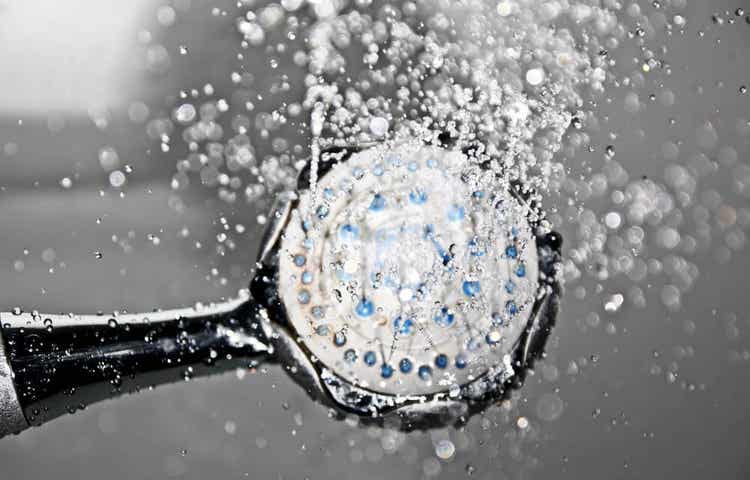How to Prevent Vaginal Infections?

Alterations in vaginal pH can result in an environment suitable for the development of bacterial, fungal, and viral infections. In itself, it’s a moist and warm environment. Therefore, along with other factors, microorganisms can proliferate in the vagina and cause vaginal infections.
Many of these infections occur during sexual contact. However, they can also be the result of improper hygiene, the use of public toilets, stress, or underwear, among others.
It’s estimated that 8 out of 10 women have suffered or will suffer from them at least once in their lives. However, there’s good news: There are measures that can be applied in order to avoid the development of these infections. Here are 9 of them that could help. Take note!
1. Personal care

This must be performed with great care since the vagina’s sensitive and its flora can be altered by any aggressive agent. In addition, given its characteristics, an appropriate environment for the cultivation of yeast and bacteria is often produced. For this reason, it’s best to use a soap that respects its natural pH. At the same time, it’s important to always clean from front to back.
Learn more: 5 Calming Remedies for Vaginal Itching
2. To avoid vaginal infections, learn about STDs
Sexually transmitted diseases (STDs) are infectious and are one of the main causes of vaginal conditions. Therefore, getting to know them thoroughly is the first step in taking the necessary preventive measures. This will not only guarantee a good state of health, but will also allow you to lead a full and healthy sexual life.
3. Avoid douching
Some people think that douching is the best way to keep bad odors and infections away. However, studies have proven that washing the inside of the vagina is harmful, as it destroys the healthy bacteria that prevent infections.
Disruption of your microbiome can lead to strong sensitivity which, in turn, can lead to the proliferation of yeast, bacteria, and other pathogens.
4. Avoid tight-fitting clothing

Pants, leggings, and other similar garments that are too tight can block ventilation of the intimate area and create a warm, moist environment that facilitates bacterial growth. If possible, wear loose-fitting clothing–made of natural fibers–that allows air to pass through to this part of the body.
It’s important to remember to change panties and related items regularly, especially after physical activity.
5. Changing clothes after exercise
The sweat that’s released during a training routine is absorbed by your clothes and, if left in contact with the skin for long periods of time, can cause infections. Therefore, it’s essential that you remove athletic clothing as soon as possible, put it in the wash, and take a shower with a mild soap before putting on clean clothes.
It’s not a good idea to reuse athletic clothing several days in a row, especially during menstruation or during the hot season, when the risk of infection increases.
6. Don’t use perfumes or similar products
Perfumes and body washes are not suitable for use in your intimate area, as they contain various components that alter the vaginal flora or microbiota and make the area vulnerable. Likewise, vaginal deodorants are products that contain chemicals that are too aggressive and also alter the microbiota.
Although some women find the presence of discharge uncomfortable, it’s essential to know that it keeps the vagina lubricated and protected. When using these products, the “V” zone dries out. This can increase the risk of infections and it can also affect sex life.
In case you have any concerns about the type of intimate hygiene products to use on a daily basis, as well as other guidelines related to this issue, you should consult your gynecologist.
Read: 6 Questions You Should Ask Your Gynecologist
7. Strengthening the immune system against vaginal infections
The immune system is responsible for producing antibodies to fight against pathogens that try to attack the body. Therefore, a balanced diet, daily water intake, and other healthy habits are the fundamental ways to keep it healthy or, if necessary, strengthen it.
To give it an extra boost, try minimizing industrial foods (snacks, candy, sweets, ultra-processed foods, and certain beverages), and increase your intake of fresh foods, such as fruits and vegetables.
8. Don’t take excessive medications
Certain medications, such as antibiotics, weaken the bacterial flora and can lead to the appearance of fungus in the female genital tract.
Although some are designed to control infections, many viruses and bacteria have developed a resistance that allows them to attack. In addition, excessive consumption of the chemicals they contain lowers the defenses and leaves the body susceptible to their proliferation.
We recommend you read: 6 Steps to Fight Vaginal Yeast Infections Naturally
9. Use cotton underwear to avoid vaginal infections.

Many people prefer underwear made of lace and similar materials because they think they’re more attractive and sensual. The problem with this is that these materials don’t allow the skin to breathe well. In addition, they can accumulate moisture and various types of microorganisms. In order to avoid this, it’s best to opt for cotton panties and fabrics that generate more ventilation.
Finally, remember that, in addition to these tips, you should visit your gynecologist regularly to check that everything’s okay. And if you think you have an infection, don’t self-medicate, as this could cause adverse reactions, complicate the diagnosis, and prolong recovery time.
All cited sources were thoroughly reviewed by our team to ensure their quality, reliability, currency, and validity. The bibliography of this article was considered reliable and of academic or scientific accuracy.
- Cires Pujo, Miriam, et al. “Guía para la práctica clínica de las infecciones vaginales.” Revista Cubana de Farmacia 37.1 (2003): 0-0.
- Gondo, Danielle Cristina Alves Feitosa, et al. “Abnormal vaginal flora in low-risk pregnant women cared for by a public health service: prevalence and association with symptoms and findings from gynecological exams.” Revista latino-americana de enfermagem 18.5 (2010): 919-927.
- Pozo, Caballero, et al. “Vaginosis bacteriana.” Resumed 13.2 (2000): 63-75.
- Clínica Mayo. https://www.mayoclinic.org/es-es/diseases-conditions/yeast-infection/symptoms-causes/syc-20378999
- VV.AA. (2018).Vaginal health and hygiene practices and product use in Canada: a national cross-sectional survey. https://bmcwomenshealth.biomedcentral.com/articles/10.1186/s12905-018-0543-y
- Bleicher, Josh., Stockdale, Coolen. (2015). Association between recurrent bacterial vaginosis and Helicobacter pylori infection: a case report. https://ir.uiowa.edu/cgi/viewcontent.cgi?article=1289&context=pog
- VV.AA. (2013). Evidencia científica sobre el papel del yogur y otras leches fermentadas en la alimentación saludable de la población española. http://scielo.isciii.es/scielo.php?script=sci_arttext&pid=S0212-16112013000600038
- Cruz Lage L, González Ferrer J, Parra Alonso L. et al. Factores de riesgo en la infección vaginal. Correo Científico Médico de Holguín. 2011; 15(3): http://www.cocmed.sld.cu/no153/no153ori04.htm.
This text is provided for informational purposes only and does not replace consultation with a professional. If in doubt, consult your specialist.








